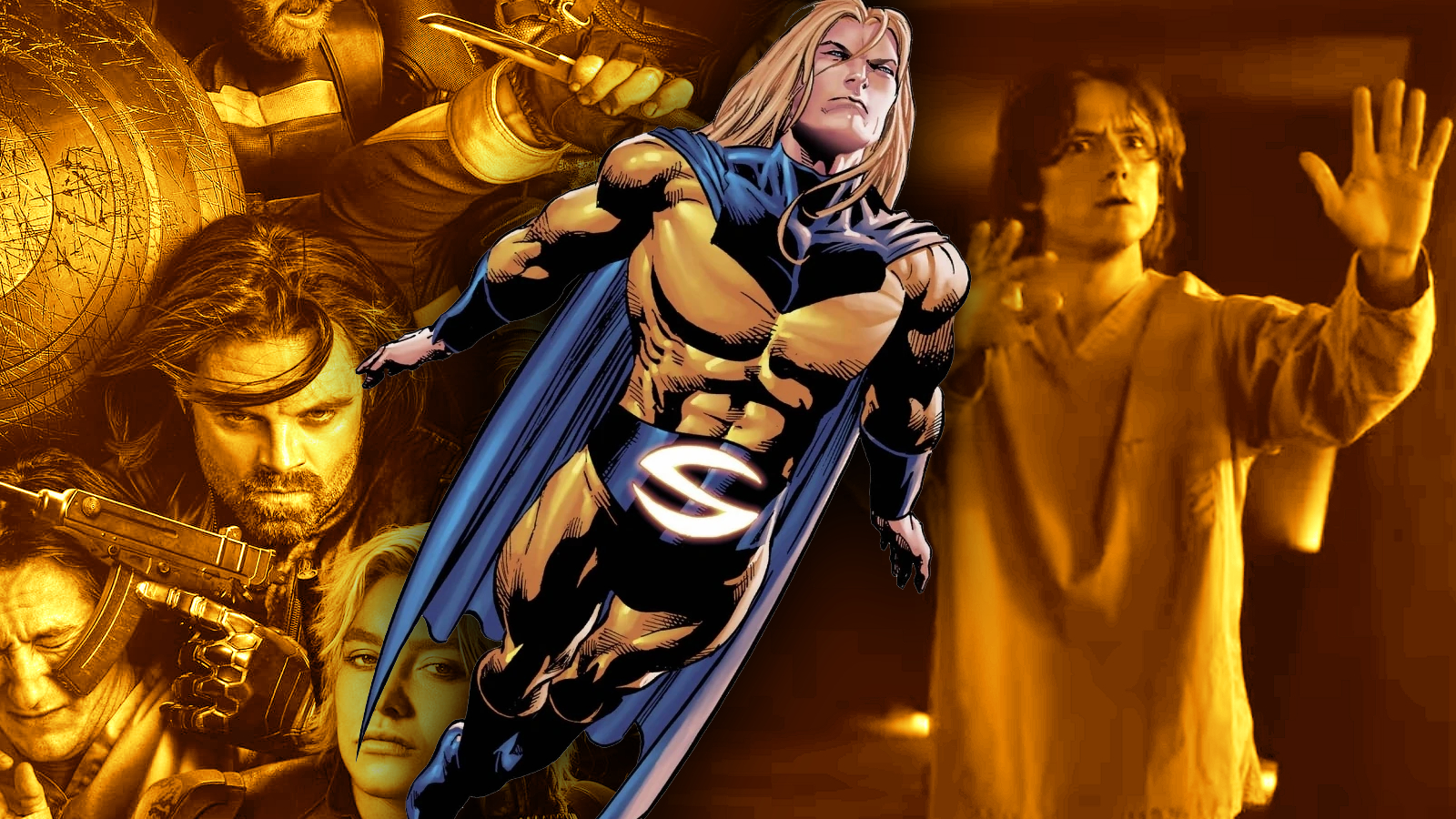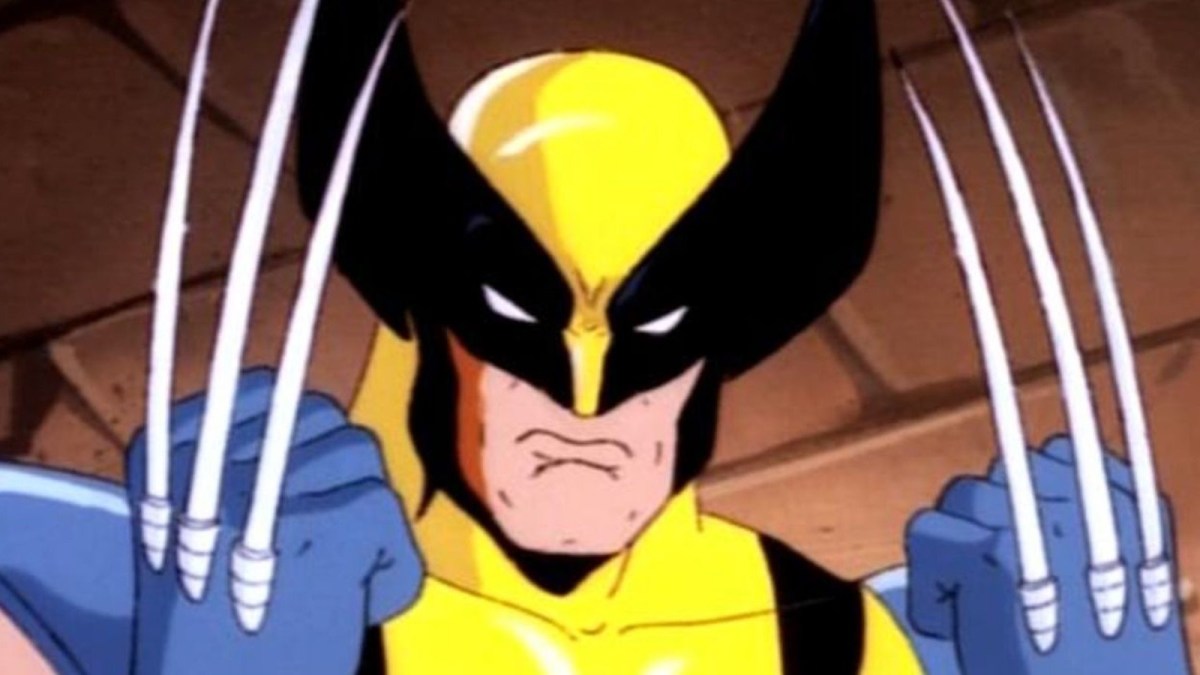There’s been a lot of chatter lately about the popularity of The Boys‘ Homelander, primarily focusing on the viewer demographic he’s popular with. It’s a worthwhile talking point, yet it ignores another, more unsettling one: we’re all a bit fixated on evil Superman characters like Homelander.
Related: How to Watch The Boys and Its Spinoffs in Order
In the past 20 or so years, there’s been a marked uptick in popular media featuring a Superman surrogate (or even the Man of Steel himself) breaking bad. Not a clone, or an imposter, or a victim of brainwashing, or some other handy excuse. The genuine article — or a convincing stand-in — goes genuinely off the rails. And every time this happens, we lap it up and ask for more.
So, why are we so obsessed with Homelander and his fellow not-so-supermen?
A Snapshot of Super Evil Supermen (Including Homelander)

Think “obsessed” is too strong a word? The last two decades of pop culture beg to differ. Heck, comic books have exploited the evil Superman trope for twice as long. DC gave us (among others) Ultraman, Superboy-Prime, Last Sun, and — if we stretch the definition of evil to include “terrifyingly ambivalent” — Doctor Manhattan. Meanwhile, Marvel cranked out Hyperion and Sentry (who admittedly only sometimes fits the bill). Dynamite Entertainment is home to Homelander. Image Comics has Invincible’s Omni-Man. Boom! Comics served up Irredeemable’s Plutonian.
That’s a lot of deranged do-gooders. The list only gets bigger when we widen our focus to other media. Notably, DC has backed several movies, TV shows, and video games in the last 20(ish) years where Superman himself has a heel-turn. Zack Snyder’s Batman v Superman: Dawn of Justice, animated features Justice League: Crisis on Two Earths and Justice League: Gods and Monsters, the Justice League cartoon, and the Injustice video game franchise all feature rogue Supermen.
The off-brand “Big Blue Boy Scout Gone Bad” market is booming, too. Prime Video’s Invincible and The Boys adaptations have made household names of Omni-Man and Homelander. The 2019 superhero/horror, cult favorite Brightburn — a dark inversion of Superman’s origin story — turned a modest profit. Even Marvel Studios took a swing, recasting Eternals‘ typically upstanding Last Son of Krypton analog, Ikaris, as the blockbuster’s secret antagonist. Clearly, this concept is something creators across a range of media are confident audiences have an appetite for.
Related: Why The Boys Movie Trilogy Was Canceled, Explained
If Absolute Power Corrupts Absolutely, Then Homelander’s Absolute Superpower …
That brings us to the “why” of it all. Why is this concept so compelling? The obvious answer is the novelty factor. It’s just straight-up fun to see a corrupted version of an infamously incorruptible figure like Superman. But there’s another, deeper reason: we don’t trust powerful people. Lord Acton’s 19th-century observation that “absolute power corrupts absolutely” is still trotted out today because our position on unchecked authority hasn’t changed in the years since.
The idea of someone like Superman, with the power to literally reshape the world, wielding their power benevolently is a leap too far. We expect a real Superman to have an ulterior, self-serving motive, if not an underlying tyrannical bent. Sure, plenty of folks (including yours truly) buy into the escapist fantasy of a benevolent demigod in a cape. Yet even someone who wholeheartedly subscribes to the Superman idea can appreciate the benefit of interrogating it — especially now.
Fear of both authoritarianism and abuse of power looms large in the current political climate, the world over. As such, it’s understandable that storytellers use evil Superman pastiches like Homelander to unpack these concerns. It’s equally unsurprising that audiences respond enthusiastically to this approach. Whether they consciously clock it or not, Homelander and his ilk provide them a way of grappling with their anxiety. Is it any wonder these baddies are so in vogue?
Related: How Does The Boys End in the Comics?
Don’t Expect Our Evil Superman Obsession to End

If the current proliferation of evil Supermen is a symbol of our times, the logical assumption is that their popularity will eventually wane. Once the political scene calms down, we’ll lose interest in them, right? Not necessarily. We’ll always need villains like Homelander because we’ll always be wary of all-powerful people. The intensity and primacy of this sentiment will naturally ebb and flow, however, it will never vanish entirely. Power imbalances and dubious self-proclaimed saviors are baked into the human condition, unfortunately. We can’t change this, but thanks to Evil Supermen, we can at least make sense of it. They may have zero interest in saving the day, yet they rescue us just the same.
The Boys Season 4 is currently streaming on Prime Video.














Published: Jul 22, 2024 11:28 AM UTC